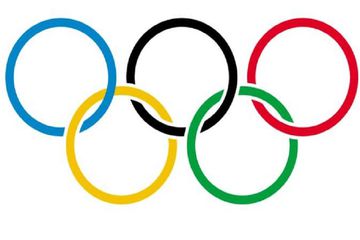Killing It Softly: Olympics 2016
Citius Altius Fortius (Faster Higher Stronger)
The motto of the Olympics was gasping through a slow strangulation as the Olympic Committee decided the fate of the unceremoniously excluded softball events at the 2012 Beijing Olympics.
Softball, a softer version of baseball, is exclusively a women’s competition at the Olympics. It was started because women were not allowed to play baseball. The basic differences between softball and baseball are that in the former, the players use a lighter ball, the distances are smaller and there are just seven innings instead of nine.
Traditionally, women have had a raw deal at the games. Even the founder, Pierre Coubertin, disallowed women in 1896 because he felt their inclusion would be, in his words, "impractical, uninteresting, unaesthetic, and incorrect."
American women, widely believed to be emancipated, could not participate in swimming in 1912 because their nation would not allow them to participate without wearing long skirts.
In 1928, women did compete in some track and field events. They also fainted, because one event--the 800 meters run--was unsuitable to their fitness levels. The event was restituted in 1960, clearly a result of enhanced training and facilities.
It was a while before the Olympic committees recognized that women’s sport needed to be recognised in its own right, and not necessarily as an inferior version of men’s sport.
Derecognising softball during the 2012 and 2016 Games caused considerable outrage.
“At the highest level they are moving away from the ideals of Olympicism. We've been a casualty of that. I'm not against golf or any other sport being at the Olympics. I think there should be a place for everyone. I just thought we'd been loyal to the Olympic movement and they should have been loyal to us,” the Herald Sun quoted Melanie Roche, four-time Olympic medalist in softball, as saying.
There were other more serious implications.
“The removal of softball from the Olympics has had an adverse impact on the game: Australia's government gave less funding to the sport as a result of the decision. This means players are able to do less international travel and compete at the highest levels,” the Wikipedia page on Softball at the Summer Olympics says, referring to a now unavailable Canberra Times story.
A bunch of lost opportunities for aspiring women athletes! Maybe that is why, in the crucial 3 August meeting, the powers that be decided to include it in the 2020 Tokyo Olympics.
The Indian story is something else again. We have a Karnam Malleswari, a Mary Kom and a Sakshi Malik--all of whom won a bronze for a country whose mind sets they had to fight against. What is impressive is that they were all ‘manly’ sports--weightlifting, boxing and wrestling, respectively. Our latest poster girl, PV Sindhu, lined the otherwise dark cloud of the 2016 Olympic outing in silver. To be fair to other women athletes, the gymnast Dipa Karmakar and 18-year-old golfer Aditi Ashok made a mark too. End of story.
How much does the final medal tally matter? Reams of paper and terabytes of media space have tallied medals. How many golds, silvers and bronzes did each nation sprint away with?
A few newspaper columns though, quietly, spoke of the fourth medal, the Pierre de Coubertin medal, named after the founder of the modern Olympics. It is a fair-play award. Instituted in 1964, it has been awarded only 17 times so far--once to a woman, Nikki Hamblin from New Zealand, who gave up her medal to help a fellow runner in distress.
This year, India brought home a bronze and a silver--our first silver!
Is there a ghost of the Pierre de Coubertin medal lurking around our three bronzes and this one silver--won by women who won despite odds? By women who humored society, achieved work-life-ambition balance and pursued their dream? Women who were far more fortunate than hundreds of their sisters in having been blessed with mature partners and families to back them?
To the winners of these medals and to their support systems, to the women who gave up their dreams so that husbands/brothers/families might live theirs--the fourth medal goes to all of them!













